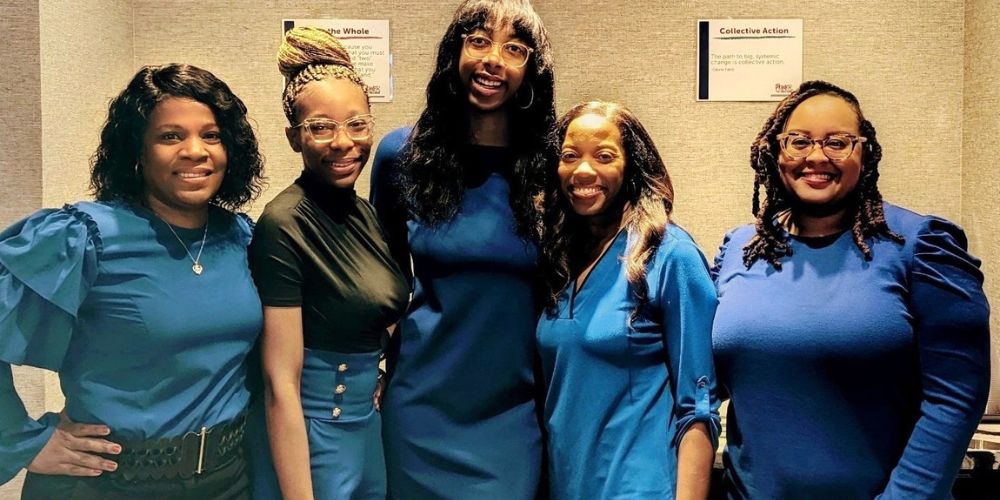UTA students take on health disparities

A group of University of Texas at Arlington students and faculty are teaming up to address reproductive health disparities in Texas.
College of Nursing and Health Innovation public health students Rebecca Jackson and Tiara Pratt are helping lead a project aimed at addressing the state’s high rates of maternal morbidity among Black women and children. They are working under the mentorship of UTA Assistant Professors Kyrah Brown and Jaquetta Reeves and Clinical Assistant Professor Brandie Green, with funding from Power to Decide, a group that advocates for young people to have access to sexual and reproductive health-related resources and raises awareness about the inequalities of reproductive well-being among certain groups.
Jackson said her experience taking Green’s “Urbanization and Vulnerable Populations” class, especially a segment on maternal and child health and its focus on the disparities women in Texas face, inspired her to do more.
“Texas is one of the worst places for Black women to give birth because of how high the mortality rate is,” Jackson said. “Knowing that affects me personally. That’s what really motivated me.”
It is also personal for Pratt, who said she had friends in her life who recently gave birth and “did not have the best experiences.” Hearing those stories hit home.
“I want to help provide a chance for Black women and Black children to be safe in a hospital setting and know that their lives are not on the line,” Pratt said.
UTA’s team is one of 10 across the country working toward the collective goal of access to reproductive health resources for all. Participants identified specific needs in their area along with possible solutions all in the name of raising awareness of reproductive health inequities. The UTA group will focus on 18–30-year-old Black, cisgender women, along with Black men.
The UTA group plans to provide members of their target group with cameras and ask them to take pictures of their environment to help show their daily life experience and how it impacts their reproductive health. A speaker series is also in the works.
“We believe there is an urgent need to construct, realign and improve systems that support people of color, as well as to foster an environment of equity, empowerment and autonomy,” Reeves said.